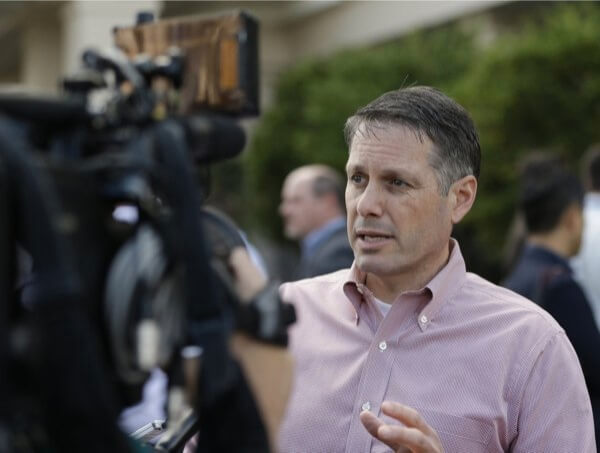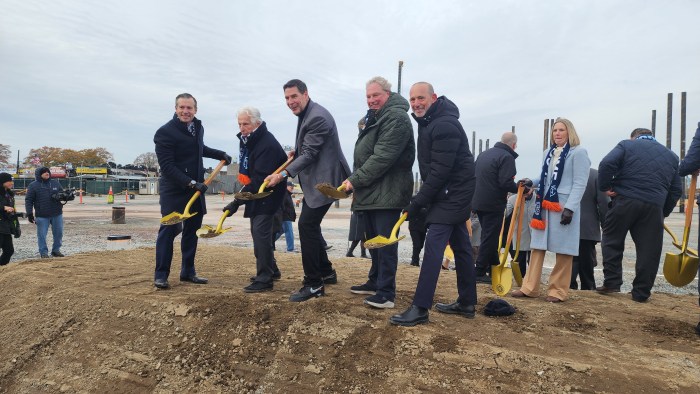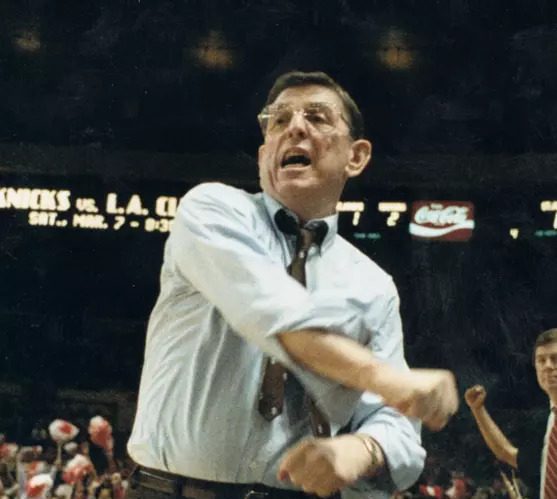By Zach Gewelb
The Mets’ front office failed to shape a new future for the organization prior to the trade deadline. Not only did the club elect not to make any major moves to bring back blue chip prospects to the franchise, it floundered on the field, too.
The Mets were dealt a historic loss at the hands of the Washington Nationals, losing 25-4 in D.C. hours after the deadline passed. Yet their failure in the front office was arguably worse than it was on the field.
Led by a trio of general managers after Sandy Alderson stepped aside, the club only made two minor moves that were panned league-wide.
First, they traded star reliever Jeurys Familia to the Oakland Athletics for a unspectacular return. The Mets received 23-year-old third baseman Will Toffey — the A’s fourth-round pick in the 2017 draft — and 26-year-old reliever Bobby Wahl. Neither prospect moves the needle. The A’s are also responsible for absorbing the remaining $3 million on Familia’s contract.
How sad is that? The Mets, a supposed big market team, shipping off one of their best trade chips for two insignificant prospects and $3 million.
Making matters worse, Familia was the first big name reliever traded. Had they waited for Zack Britton — the best reliever on the market — to be moved, they could have started a bidding war for Familia, the second-best reliever available. Instead, they got very little in return for one of their best assets.
The Mets also moved infielder Asdrubal Cabrera to the Phillies for Double-A right-hander Franklyn Kilome. New York saved the remaining $2.8 million of Cabrera’s contract, which is assumed by the Phillies. So for the second time in July, the Mets traded a valuable asset for chump change.
The club had a real chance to start a rebuild by shipping off some of their finer assets like Noah Syndergaard, Zack Wheeler or Steven Matz, all of whom have dealt with injury problems over the last few seasons. They could break at any moment and the Mets had a chance to capitalize on their health before either one gets hurt again.
Wheeler’s name was floated around at the deadline, but the Mets’ asking price was reportedly too high. Same goes for Syndergaard, who is arguably the Mets’ most talented pitcher, but carries perhaps the most risk given his injuries the last two seasons.
Jacob deGrom was the team’s best trade chip. He is under team control through the 2020 season and would have been the best starting pitcher on the market. The Mets could’ve asked for a king’s ransom in return for deGrom and brought back the type of prospects that could change the future of a franchise. But the deadline passed and deGrom, like Syndergaard, Wheeler and Matz, is still here.
Rather than move some of their controllable assets, the Mets elected to only move their rentals. Both Familia and Cabrerea are eligible for free agency after the season. Rentals bring back significantly less in trades than players with more than one year of control. And those returns were further diminished when the Mets asked their trade partners to pick up salary. Had the team agreed to continue paying for Cabrera and Familia, it would have received much more in their packages.
While the Mets didn’t make any splashy moves, the front office can’t really be blamed. After Alderson stepped down, the Mets named John Ricco, J.P. Ricciardi and Omar Minaya as acting general managers. Three people were chosen to do a job meant for one.
A general manager is supposed to have a vision for the organization and make roster moves to realize that vision. That becomes much harder to do when there are three different people leading the charge.
The Mets have said that they will search for a new general manager outside the organization to lead the franchise. That puts the current general manager trio in a tough spot. How can they be expected to trade off key pieces in the organization for prospects when they don’t know who the new general manager would be? Those kind of moves need to be made by the man in charge. And right now, that person doesn’t exist.
So, the Mets elected to hang on to their controllable assets, hoping and praying that they stay healthy to either be moved in the offseason, or be a part of the new GM’s plan to possibly compete for a playoff spot next year. It’s a big risk to take, and given the Mets’ recent luck, it’s impossible to be optimistic about their chances of success moving forward.
Reach reporter Zach Gewelb by e-mail at zgewe





































